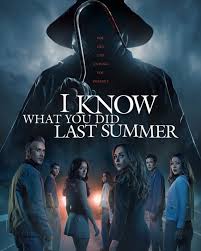
Introduction
Defined as one of the defining horror films of the late 1990s, ‘I Know What You Did Last Summer’ continues to resonate with audiences today. Released in 1997, this slasher film not only propelled its cast to stardom but also ignited a new wave of teen horror flicks, tapping into the themes of guilt, betrayal, and vengeance. Its legacy raises important questions about the changing landscape of horror, particularly in how it mirrors societal fears and the evolution of storytelling in the genre.
The Film’s Journey
Produced by Neal H. Moritz and directed by Jim Gillespie, ‘I Know What You Did Last Summer’ was adapted from Lois Duncan’s novel of the same name. Starring the likes of Jennifer Love Hewitt, Freddie Prinze Jr., Sarah Michelle Gellar, and Ryan Phillippe, the film follows a group of teenagers who are stalked by a mysterious killer a year after they cover up a hit-and-run accident. The film grossed over $125 million globally against a budget of around $17 million, a testament to its popularity and impact. The story taps into a nightmare scenario: the repercussions of mistakes and the unnerving idea that someone knows your secrets.
Impact on Pop Culture
Aside from its box office success, ‘I Know What You Did Last Summer’ played a major role in shaping the teen horror genre. Its combination of suspense, romance, and psychological thriller elements echoed in other franchises that would follow, notably the ‘Scream’ series. The film’s iconic tagline, its chilling opening scene, and the memorable character of the vengeful killer contributed to a nostalgia-fueled revival, evidenced by its recent television adaptation slated for production by Amazon.
Modern Relevance
Today, the film is discussed in light of modern horror trends and remakes, often scrutinized for its portrayal of youth, morality, and consequence. The essence of the narrative symbolizes a broader cultural reflection on accountability and the lingering impacts of our actions—topics that remain highly relevant in contemporary discussions surrounding social media and the permanence of digital footprints. Critics and fans alike debate whether the film still holds up against modern horror standards, thus sparking renewed interest among young viewers discovering it for the first time.
Conclusion
‘I Know What You Did Last Summer’ remains an important piece of cultural history and continues to inspire dialogue and creativity in the horror genre. Its blend of suspense and moral questioning speaks to timeless themes that resonate with audiences today. As new adaptations emerge and the genre evolves, one can only anticipate how these narratives will be reshaped, reminding us that the truths of our past—both good and bad—continue to haunt us.



